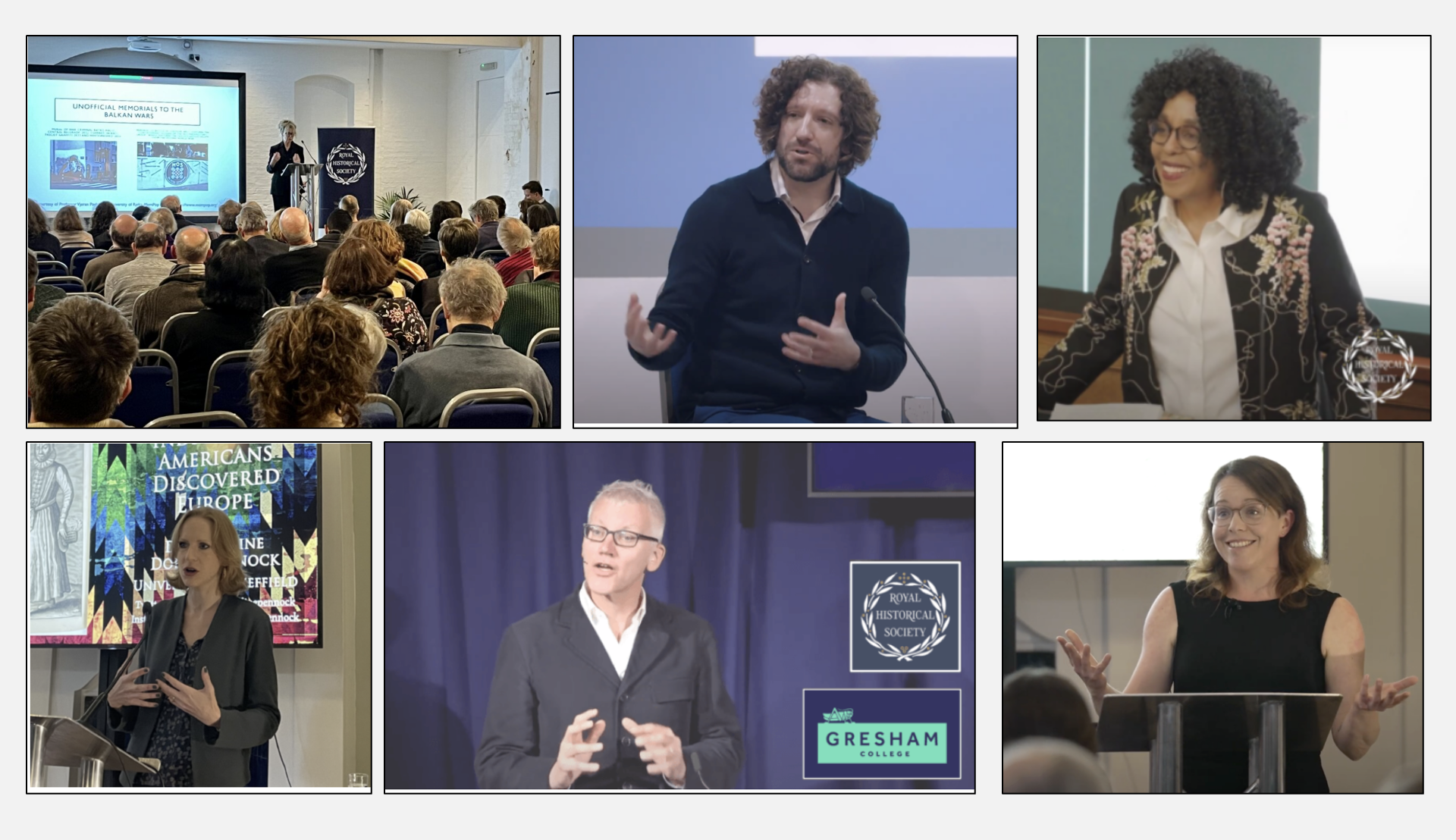We are very grateful to Dr Natasha Hodgson for her Royal Historical Society lecture delivered on Friday 7 February. In her lecture — ‘Dangerous Journeys: Framing Women’s Movement in the Medieval World’ — Natasha demonstrated the expanding patterns of women’s movement and migration, as governed by subsistence crises, the growth of urban centres, and a search for new trade routes as well as lands to settle.
Watch the video of Natasha’s lecture
Listen to the audio version of the lecture
The journeys made by medieval women are at odds with prevailing accounts of restrictions on women’s power and movement. Those who were able to transcend these barriers are typically considered ‘exceptional’. In her lecture, Natasha questioned the value and accuracy of exceptionality as a category of analysis for those women who left their homes and travelled, whether temporarily or to migrate, and who undertook the ‘dangerous journeys’ of pilgrimage and crusade central to this paper.
In making these journeys, many women faced criticism, or at the very least concerns about the dangers posed to their personal and spiritual safety. However, this did not prevent a substantial number of women from all social classes moving around the medieval world.
Natasha’s lecture also drew on her work in schools history, as co-founder of teachingmedievalwomen.org—a collaborative initiative to expand and revitalise the teaching of women’s history in medieval studies. New research on and understanding of women’s lives is yet to appear in the teaching or assessment of medieval history in schools. As Natasha argued, exploring ‘dangerous journeys’ provides one means to bring the vibrancy and nuance of historical research to the classroom.
Dr Natasha Hodgson is an Associate Professor in History and Director of the Centre for Research in History, Heritage and Memory Studies (CRHHMS) at Nottingham Trent University in the UK.
Other recordings of Society events

Recording are available for many of our events, including lectures, panel discussions and workshops on professional practice and development. The RHS Events Archive includes recent lectures by, among others, Janina Ramirez, Julia Laite, Tom Holland, Brenda Stephenson, Caroline Dodds Pennock and Greg Jenner, and guides to History and Gen AI, writing a first monograph, and history podcasting.




 . .
. . 







 Speakers addressed the many threats currently felt, with particular force, by humanities academics in the Post-92 sector. But greater attention was given to the distinctive achievements, contributions and value of Post-92 departments as a key element of UK higher education.
Speakers addressed the many threats currently felt, with particular force, by humanities academics in the Post-92 sector. But greater attention was given to the distinctive achievements, contributions and value of Post-92 departments as a key element of UK higher education.

 The Royal Historical Society’s
The Royal Historical Society’s 


